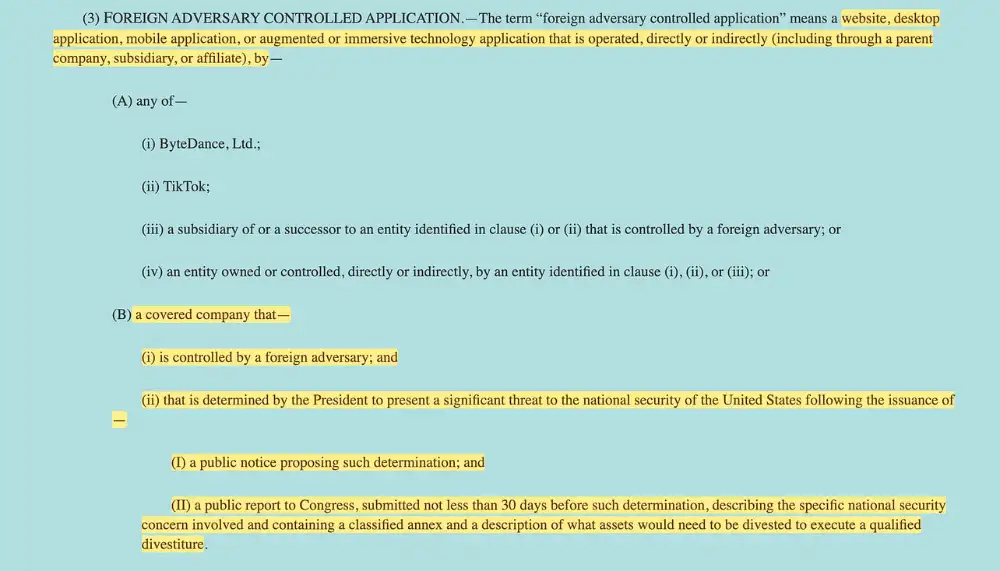On Friday, President-elect Donald Trump asked the Supreme Court to pause the implementation of a law that would ban TikTok in the U.S. starting Jan. 19 if the app is not sold by its Chinese parent company.
The court is due to hear arguments in the case on Jan. 10.
“President Trump takes no position on the underlying merits of this dispute,” wrote D. John Sauer, Trump’s lawyer who is also the president-elect’s pick for U.S. solicitor general. “Instead, he respectfully requests that the Court consider staying the Act’s deadline for divestment of January 19, 2025, while it considers the merits of this case, thus permitting President Trump’s incoming Administration the opportunity to pursue a political resolution of the questions at issue in the case.”
Donald Trump wants to protect Americans from the Foreign Adversary Controlled Applications Act, a very broad act that could allow Congress to shut down other platforms the congresspeople don’t like.
Warnings About the Bill
The law would require TikTok’s Chinese owner, ByteDance, to sell the platform to an American company or face a ban.
Matt Taibbi has an article at Racket News on substack, which is available to everyone. He sounds the alarm over the “dangerous” TikTok ban. The bill is titled the Foreign Adversary Controlled Applications Act. Taibbi’s concerns are about the free speech issue and the power we would give the Executive Branch – Joe Biden – if we allow this bill to go through.
Taibbi reminds everyone what happened with George Bush’s Patriot Act. The act lets the government pretty much do whatever it wants. This TikTok ban has the same potential.
The Fine Print
You’ll find the real issue in the fine print. There, the “technical assistance” the drafters of the bill reportedly received from the White House shines through.
Look particularly at the first highlighted portion and sections (i) and (ii) of (3)B:
As written, any “website, desktop application, mobile application, or augmented or immersive technology application” that is “determined by the President to present a significant threat to the National Security of the United States” is covered.
Currently, the definition of “foreign adversary” includes Russia, Iran, North Korea, and China.
The definition of “controlled,” meanwhile, turns out to be a word salad, applying to:
(A) a foreign person that is domiciled in is headquartered in, has its principal place of business in, or is organized under the laws of a foreign adversary country;
(B) an entity with respect to which a foreign person or combination of foreign persons described in subparagraph (A) directly or indirectly own at least a 20 percent stake or
(C) a person subject to the direction or control of a foreign person or entity described in subparagraph (A) or (B).
A “foreign adversary controlled application,” in other words, can be any company founded or run by someone living at the wrong foreign address or containing a small minority ownership stake. Or it can be any company run by someone “subject to the direction” of either of those entities. Or, it’s anything the president says it is. Vague enough?
As Newsweek reported, the bill was fast-tracked after a secret “intelligence community briefing” of Congress led by the FBI, Department of Justice, and the Office of the Director of National Intelligence (ODNI). The magazine noted that if everything goes as planned, the bill will give Biden the authority to shut down an app used by 150 million Americans just in time for the November elections.


